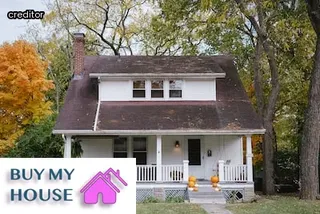The Kentucky foreclosure process can be a lengthy and intimidating endeavor. Knowing the average timeframe for a KY foreclosure is beneficial in understanding how to prevent it.
Typically, the process begins when a homeowner fails to make their mortgage payments and the lender sends out a Notice of Default. Once this document has been received, the homeowner typically has between 30-60 days to bring their loan current before the lender begins foreclosure proceedings.
If no payment is made within that time frame, the lender can start the process by filing a Complaint of Foreclosure with the court. The court will then enter an order for foreclosure which provides notice to all parties involved.
After this is done, there may be several weeks or even months before the property auction takes place where final ownership of the home is determined. It’s important to note that all these steps take time, so if you’re looking to stop a Kentucky foreclosure, it’s best to act as quickly as possible and contact your lender directly in order to try and come up with an arrangement that works for both parties.

Foreclosures occur in Kentucky when a homeowner fails to make payments on their mortgage or other loan obligations. When the debt is not paid, the lender will begin legal proceedings and file a foreclosure complaint with the court.
The court then issues a summons to the homeowner and all interested parties. This summons informs them of the foreclosure action and outlines what must be done to stop it from occurring.
Kentucky homeowners have two options if they receive this summons: they can either pay off their debt or request mediation from the court. Mediation involves meeting with a mediator who helps negotiate with the lender, review any payment options that may be available, and find ways to stop the foreclosure process before it reaches its conclusion.
If these negotiations are successful, then both parties can agree upon an arrangement that keeps the home from being foreclosed upon. Otherwise, if no agreement is reached, then foreclosure proceedings will continue until ownership of the property is transferred to the lender.
Mortgage loans are an integral part of the Kentucky housing market, and when homeowners fall behind on their payments, foreclosure is a real possibility. Understanding the foreclosure process in Kentucky can be daunting, but it is important to stay informed and take action if you miss payments.
By understanding your rights and obligations as a homeowner, you can take the necessary steps to stop the foreclosure process before it begins. Knowing what options are available for payment assistance and other forms of financial aid can be beneficial in preventing foreclosure.
Additionally, consulting with an attorney or housing counselor may be an option if you need additional information or assistance with navigating the foreclosure process in Kentucky. It is important to remember that foreclosure is not inevitable and that there are steps you can take to prevent it from happening.

In Kentucky, the foreclosure process typically begins with a Notice of Default. This notice is sent to the homeowner after they have failed to make their mortgage payments for several months.
After receiving this notice, the homeowner has a certain amount of time (usually 30 days) to cure the default and resume making payments or contact the lender and work out an arrangement to pay off the debt. If payment is not made in this timeframe, the lender may file a Complaint of Foreclosure in court.
The court will then issue a Summons and Complaint, which must be served on the homeowner. At this point, it is important that homeowners take steps to stop foreclosure by working with their lender if possible or contacting an attorney for assistance if necessary.
In Kentucky, the foreclosure process begins when a homeowner falls behind on their mortgage payments. The lender will then file a complaint in court and send a copy of it to the homeowner.
Once the homeowners have been served, they have 20 days to respond. If they do not answer within that time frame, the lender can request a default judgment from the court.
At this point, the lender can start foreclosure proceedings against the borrower and sell their home at auction. If you are facing foreclosure in Kentucky, it is important to understand all of your rights under state law and act quickly to stop or delay foreclosure proceedings before they begin.
There are various options available that may be able to help you keep your home and avoid financial hardship.

A judicial foreclosure in Kentucky requires the lender to file a complaint with the court and serve it upon the borrower. The court will then issue a summons and set a date for the hearing.
In order to legally pursue a judicial foreclosure, the lender must demonstrate that they have all of the necessary paperwork, such as the note, deed of trust, or mortgage agreement. Additionally, they must be able to prove that they are legally entitled to foreclose on the property.
The borrower is also required to appear at the hearing and present evidence or testimony in their defense. If either party fails to comply with these requirements, then the court will dismiss the case.
It is important for both parties to understand what is involved in a judicial foreclosure process in Kentucky so that it can be avoided or stopped if necessary.
When it comes to the foreclosure process, it can be difficult to know where to start. Writing a breach letter is an important first step in understanding and stopping the foreclosure process in Kentucky.
A breach letter is a written notice sent by a homeowner to their lender or servicer informing them that they are in default of their loan agreement. The letter should include the amount of money owed, how long the borrower has been in default, and any other information relevant to the situation.
By sending this notification, the borrower is providing an opportunity for the lender or servicer to work out a solution before the foreclosure process begins. If no agreement can be reached within a certain period of time, then the lender or servicer may begin with initiating foreclosure proceedings.
It is important for homeowners to understand that there are steps they can take to avoid having their home enter into foreclosure. Seeking legal advice from an experienced attorney can help guide homeowners through this difficult process and provide insight into how best to prevent it from occurring.

Reinstating the mortgage before a foreclosure sale in Kentucky is possible if the homeowner is able to pay off their past due balance. The process for reinstating the loan involves submitting a payment that includes all past due payments, late fees, and any other costs associated with the foreclosure.
It’s important for homeowners to understand that this payment must be made before the scheduled sale date. If you are unsure of your rights or have questions about how to avoid foreclosure in Kentucky, it’s best to seek legal advice from a qualified professional who can help explain your options and guide you through the process.
Additionally, there are several government agencies and non-profit organizations that provide free consultations and resources to homeowners facing foreclosure. These resources can be invaluable in understanding your rights and avoiding foreclosure.
With proper preparation and guidance, reinstating your mortgage before a KY foreclosure sale is possible if you act quickly and understand the details of the process.
Once a foreclosure sale has occurred in Kentucky, the homeowner is given a certain amount of time to redeem their property. This period is known as the redemption period and it allows the homeowner to reclaim their home by paying off all amounts owed on the mortgage.
During this redemption period, foreclosure proceedings are put on hold and banks are not able to take any further action against the homeowner. It's important to understand that if you've already been served with foreclosure papers, you should still attempt to redeem your home during this period in order to avoid the permanent loss of it.
Furthermore, if you act quickly enough, you may be able to save your home by working out an alternate payment plan with your lender, or even having help from local nonprofit organizations or government programs.

Eviction after a foreclosure sale in Kentucky is a difficult process. It can be complex to understand the Kentucky Foreclosure Process and how to stop it, but understanding the legal procedures involved can help you protect your rights during eviction.
In most cases, the foreclosure process begins when the lender files a lawsuit against the property owner, followed by a court order that permits the lender to take possession of the home. If no one purchases the property at auction, then the court will grant an order for eviction which must be carried out by either an officer of the court or sheriff’s deputy.
The property owner has up to 10 days from receiving notice of eviction to leave voluntarily or face removal from the property by law enforcement. To avoid foreclosure and eviction in Kentucky, homeowners must contact their lenders as soon as possible and develop a payment plan that works for both parties.
Homeowners can also seek legal advice regarding foreclosure prevention options such as loan modifications or refinancing.
One of the most important rights that homeowners have during the Kentucky foreclosure process is the right to be notified. Homeowners must receive notice from their lending institution in writing when they are in default on any loan or mortgage.
This notice must contain information about how to cure the default, request a loan modification, or other options that may be available. Additionally, homeowners must be served with an Order of Possession if a foreclosure lawsuit has been filed against them.
It is important to note that an Order of Possession does not mean that a homeowner will lose possession of their home; it is simply a legal document that allows the lender to proceed with foreclosure proceedings if the homeowner does not make payment arrangements. Homeowners also have the right to challenge any mistakes they believe were made by their lender during the foreclosure process, such as incorrect calculation of payments or failure to properly serve legal documents.
Finally, homeowners can also obtain assistance from various organizations and programs dedicated to assisting homeowners facing foreclosure.

It is important to understand the differences between preforeclosures and foreclosures when it comes to the Kentucky foreclosure process. Preforeclosure is a period of time prior to the actual foreclosure where lenders can work with homeowners to resolve their financial situation before it reaches the foreclosure stage.
During preforeclosure, lenders may offer options such as loan modifications or repayment plans that allow homeowners to stay in their homes, while also providing a way for lenders to manage and recover any unpaid loans. Foreclosure is the legal process that results when a homeowner has been unable to make payments on their mortgage and their home is taken back by the lender.
Understanding these two components of the Kentucky foreclosure process can help homeowners avoid reaching this point and potentially stop foreclosure altogether. Knowing what options are available during preforeclosure, as well as being aware of when foreclosure proceedings begin, can be invaluable in helping homeowners remain in their homes instead of facing eviction.
Foreclosing on a property in Kentucky can have significant financial implications for both the homeowner and any lender that is involved. The costs associated with foreclosure can be considerable and begin to mount long before the actual foreclosure takes place.
Homeowners should expect to face late payment fees, attorney fees, court costs, and other taxes that are associated with the foreclosure process. A foreclosed property may also require maintenance repairs or updates to bring it up to market value before it can be sold, which can add even more expense to an already costly process.
Even after a home has been sold at auction, homeowners may still be liable for any remaining mortgage balance if the sale price of the home did not cover their entire debt. By understanding the financial implications of a KY foreclosure, homeowners can take steps to avoid this serious situation from occurring in the first place.

If you’re facing foreclosure in Kentucky, the best way to protect your home and keep it from being sold is to seek help from a qualified foreclosure lawyer. A lawyer with experience in foreclosure law can provide invaluable advice about the process and how to navigate it.
They will be able to explain the various legal options available and can represent you during negotiations or court proceedings. An attorney can also help determine whether any of your rights have been violated and what remedies you may have available.
Additionally, they can advise on potential defenses such as improper paperwork or failing to follow state laws. It’s important that you find a knowledgeable lawyer who can give you sound advice and guide you through this difficult time.
With their expertise, they may be able to help stop a foreclosure before it happens, saving your home and helping relieve some of the stress associated with this situation.
Working with an experienced KY attorney can be a great benefit to those facing foreclosure in Kentucky. An attorney will have an in-depth knowledge of local laws and regulations, as well as an understanding of the steps needed to stop foreclosure proceedings.
With the help of an experienced lawyer, individuals can make sure all paperwork is filed correctly and that they are complying with all legal requirements. Furthermore, attorneys can provide invaluable advice on options such as loan modifications, bankruptcy filings, and debt relief services that may help individuals keep their homes.
An attorney can also represent clients in court if necessary and provide valuable guidance throughout the process. Having a trusted professional by one's side can be a great source of comfort during this difficult time.

Understanding the Kentucky foreclosure process and how to stop it can be complicated. Fees associated with the process can add up quickly, but there are ways to avoid unnecessary costs.
It is important for homeowners to know their rights in order to take the necessary steps to protect against foreclosure. Homeowners should contact their lender as soon as possible if they are at risk of falling behind on mortgage payments.
Knowing what options are available and understanding potential outcomes will help homeowners make informed decisions throughout the process. Communication between homeowners and their lenders is key, as it allows them to reach an agreement that works best for both parties – such as a loan modification or forbearance plan – before fees begin accruing.
Another option is refinancing, which could help lower monthly payments or extend repayment terms in order to keep up with mortgage payments. Homeowners should also consider consulting a housing counselor certified by the U.
S Department of Housing & Urban Development (HUDA) for guidance on next steps and avoiding unnecessary foreclosure fees in Kentucky.
Facing a foreclosure in Kentucky can be a stressful experience and often times homeowners are unsure of where to turn. However, there are several alternatives to going through with a KY foreclosure that homeowners should be aware of.
One option is to speak with your lender and try to negotiate a payment plan. Another alternative is loan modification, which could reduce the monthly payments and extend the loan term.
As well, borrowers may be able to refinance their loan or take out a second mortgage if they have sufficient equity in their home. Additionally, selling the property as part of a short sale may also be another viable option for avoiding foreclosure.
Taking advantage of government programs such as HAMP (Home Affordable Modification Program) or HAFA (Home Affordable Foreclosure Alternatives) could also provide assistance for those who find themselves at risk of defaulting on their mortgage payments. Lastly, filing for bankruptcy is one way to keep creditors from taking action against you while you explore other options for resolving debt problems.
Understanding all these alternatives can help Kentucky homeowners avoid going through with the foreclosure process and potentially save their home from being lost.

In Kentucky, there are a variety of local programs in place that can help homeowners struggling with mortgage payments. The Kentucky Homeownership Protection Center (KHPC) provides resources and assistance to those facing foreclosure or delinquency.
KHPC offers one-on-one counseling and education services, as well as assistance with loan modifications, repayment plans, budgeting and debt management. Another option is the Kentucky Foreclosure Prevention Program (KFPP), which helps homeowners explore legal options for avoiding foreclosure.
This program provides legal advice and assistance for free. There are also a number of nonprofit organizations in the state that provide financial literacy education, homebuyer counseling and other services to help homeowners stay in their homes.
Additionally, local housing authorities may provide rental subsidies or other forms of support to assist struggling homeowners in Kentucky. It is important for those facing foreclosure to understand the process and seek out available resources as soon as possible.
When facing preforeclosure or foreclosure in Kentucky, homeowners have three main options: selling, refinancing, or renegotiating the mortgage. Selling is often the most attractive option as it allows homeowners to avoid suffering from a foreclosure on their credit report.
Refinancing is a good option if a homeowner has equity in their home and can find a lender willing to refinance the loan. Renegotiating with the current lender is possible but requires some flexibility from both parties and may not be an ideal solution for all involved.
Before making any decision, homeowners should research all available options and consult with an experienced real estate attorney who can help them understand their rights and responsibilities under Kentucky law. Homeowners should also understand that time is of the essence when it comes to stopping foreclosure proceedings, so they should take action as soon as possible to ensure they are able to save their home or minimize losses.

Tax implications are an important factor to consider when navigating Kentucky’s foreclosure process. If a property owner fails to pay their mortgage, they may be subject to preforeclosure penalties, such as late fees or legal costs.
In addition, if the home is sold prior to foreclosure for less than the amount of the loan balance, the homeowner may be liable for taxes on the unpaid amount due to forgiveness of debt rules. Furthermore, state and federal taxes may also apply depending on the situation.
It is important for homeowners in Kentucky facing foreclosure to understand the tax implications so they can better assess their options and determine how to stop or delay a foreclosure action.
Foreclosure is a legal process that allows lenders to recover their money when homeowners fail to make their mortgage payments. In Kentucky, foreclosure follows the same general process as other states. The lender files a complaint in court and obtains an order from the judge authorizing the sale of the property to repay the debt.
The homeowner then has a set amount of time to respond before further action can be taken. If no response is received, lenders may proceed with foreclosure proceedings. Generally, homeowners have several opportunities throughout this process to stop or modify their loan and avoid foreclosure.
One option is for borrowers to communicate with their lender directly and negotiate new payment terms or a loan modification plan. Another avenue homeowners can pursue is working with housing counselors who are certified by the U.S Department of Housing and Urban Development (HUD).
These counselors provide free advice on how to avoid foreclosure and may be able to help borrowers find government assistance programs or other resources that can help them get back on track with their mortgage payments. Understanding how foreclosure works in Kentucky and knowing how to seek assistance if needed can help homeowners prevent losing their home due to foreclosure.

Stopping a foreclosure in Kentucky can be a difficult and intimidating process. Fortunately, there are a few steps you can take to help protect your home and prevent the loss of your property.
First and foremost, it is important to understand the Kentucky foreclosure process. Foreclosure law in Kentucky is very specific and includes several stages that must be followed by the lender before your home is taken away from you.
It is essential to stay up-to-date on all paperwork and notifications from your lender during this process, so you know exactly what steps have been taken and when action needs to be taken on your part. Additionally, it is important to contact your mortgage lender as soon as possible if you anticipate difficulty making payments or if you fall behind on payments.
Most lenders will work with you to come up with an alternative payment plan or loan modification that may better fit your budget or financial situation. If possible, consult with a legal professional who specializes in foreclosure law in Kentucky for additional insight into available options.
In some cases, filing for bankruptcy may also help halt the foreclosure process while giving you time to reorganize debts or obtain loan modifications. Ultimately, armed with knowledge of the Kentucky foreclosure process and a willingness to take proactive steps, homeowners can take control of their finances and stop foreclosures in KY.
Foreclosure is a process that can be overwhelming and intimidating when you're behind on your mortgage payments. In the state of Kentucky, a homeowner typically has to be at least three months behind on their mortgage payments before they are considered in foreclosure.
The lender will usually send a notice to the homeowner letting them know that if they do not catch up on the payments within 30 days, the foreclosure process will begin. Once the process has started, it is important for homeowners to understand what steps they must take in order to stop the foreclosure.
A home loan modification may be an option for some homeowners who are having difficulty making their mortgage payments due to financial hardship or other factors. This can include lowering the principal balance, interest rate, or even extending the loan term.
Other options may also be available depending upon each individual situation. It’s important for homeowners to contact their lender immediately if they are having difficulty making their monthly payment so that they can explore all of their options and determine which one is best suited for them.
In Kentucky, homeowners facing foreclosure may be able to take advantage of the state’s right of redemption. This legal process allows homeowners who are in default on their mortgage payments to “redeem” their home by paying off the entire loan balance and associated costs within a certain period of time after the foreclosure has been initiated.
If successful, this can stop the foreclosure process and allow homeowners to keep their homes. However, understanding and successfully navigating the Kentucky Foreclosure Process is complex and time-sensitive, so it is important that homeowners understand all of their options before they attempt to redeem their home.
Additionally, since each case is unique and laws vary from state to state, it is imperative that homeowners seek out professional help in order to ensure they meet all requirements for redemption.
A: The timeline for a judicial foreclosure can vary widely in Kentucky and is highly dependent on the individual situation. Generally, it can take anywhere from several months to over a year depending on the complexity of the case and the availability of court proceedings.
A: On average, a judicial foreclosure in Kentucky can take between 6-12 months if all parties work together and cooperate throughout the process. If the debtor contests the foreclosure, or if there are multiple liens against them, it can take much longer.

A: The foreclosure process can take several months to complete in Kentucky. After a lender initiates the foreclosure procedure, it typically takes several weeks for the discovery phase to conclude. This is followed by a period of Loss Mitigation, in which the borrower may be able to negotiate with the lender. If this fails to produce a resolution, then Summary Judgment may be entered against the borrower and the foreclosure sale can take place. All told, the entire process usually takes 3 to 6 months.
A: The length of time it takes to complete a foreclosure in Kentucky when a debtor has filed for Chapter 7 Bankruptcy and there are liens that need to be resolved through legal action can vary significantly. Generally, this process can take anywhere from several months to a year or more depending on the complexity of the case and the statutes applicable to the dispute.
A: The foreclosure process in Kentucky can vary depending on the circumstances. Generally, it takes approximately four to six months for a judicial foreclosure with the help of lawyers and liens against the debtor. If a non-consensual foreclosure is pursued, it may take longer and could also involve Deficiency Judgments.

A: On average, foreclosures in Kentucky with income can take anywhere from 6 months to a year or more to complete.
A: The length of the foreclosure process varies depending on the individual case. In general, Chapter 13 bankruptcies can extend a foreclosure process significantly. Due to the Coronavirus pandemic, many courts are delaying hearings and proceedings which can further delay a foreclosure.
A: The length of the foreclosure process in Kentucky when a bidder has an appraisal, promissory note and motion depends on the complexity of the case. Generally, it can take anywhere from 3 to 18 months for the process to be completed.

A: The length of the foreclosure process in Kentucky varies depending on the individual case and the legal action taken by the homeowner. Generally, stopping a foreclosure can take anywhere from 3-6 months, with the most common timeframe being around 4-5 months.
A: Understanding the Kentucky foreclosure process can be complex, but generally, it takes between four to six months for a foreclosure to complete. It is possible to stop the process if the homeowner is able to pay off the mortgage default or work out an agreement with the lender. Alternatively, various Kentucky laws and court proceedings can also extend the length of time it takes to complete a foreclosure.
A: On average, the foreclosure process in Kentucky can take from 6 to 10 months.

A: The length of time it takes to complete a foreclosure and repossession auction process in Kentucky will depend on the complexity of the case and other factors. Generally, it may take anywhere from three months to two years for the process to be completed.
A: Foreclosure proceedings in Kentucky typically take between 90-120 days, although the process can be delayed if the homeowner takes legal action or files for bankruptcy.